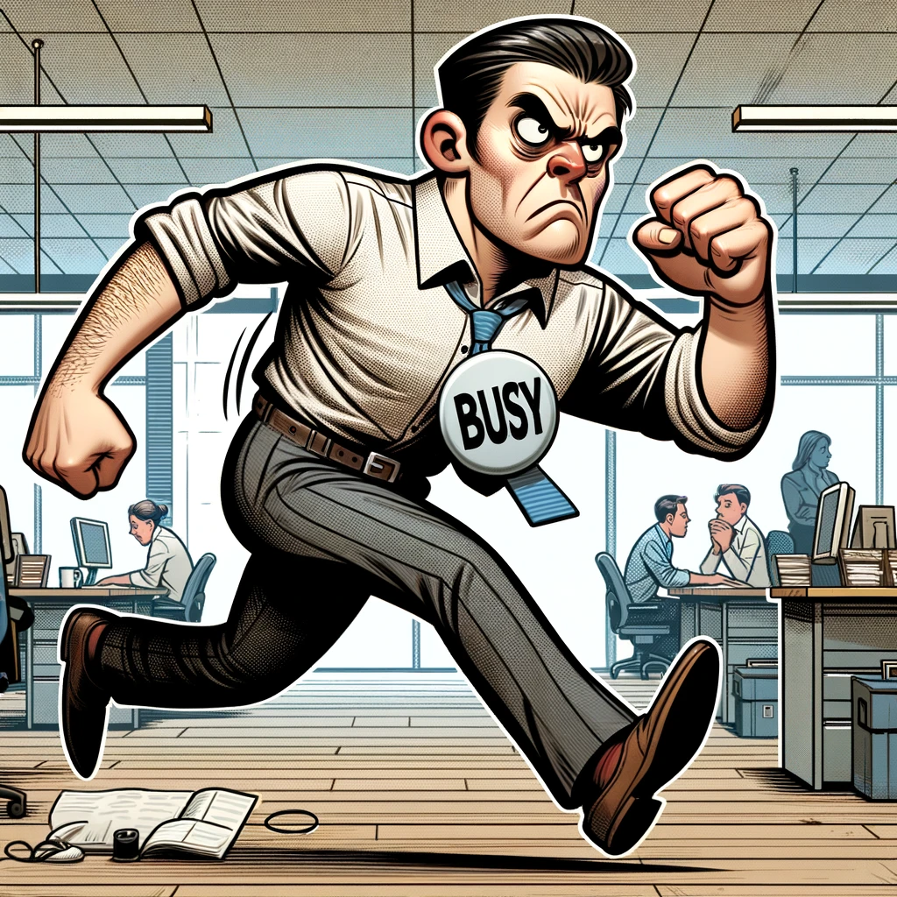|
In a world that often conflates seriousness with professionalism, the concept of play might seem like an unwelcome guest in the boardroom. Yet, as we navigate the complex landscape of today's workplace, the integration of play into our professional lives emerges not just as a refreshing escape but as a critical strategy for fostering collaboration, creativity, and transformational leadership. The Foundation of Play: Play is often seen as the antithesis of work, relegated to the domain of children and leisure activities. However, in my 25 years of working with leaders across the spectrum, I've witnessed firsthand the power of play (as an unconstrained creative exercise) as a precursor to deep, meaningful collaboration. Play, in its essence, is about exploration, experimentation, and the freedom to fail and learn. It's these very qualities that lie at the heart of innovative thinking and problem-solving in the business world. Play is our brain's favourite way of learning. – Diane Ackerman By embracing play, we allow ourselves and our teams to break free from the constraints of conventional thinking, enabling a flow of ideas that can lead to unexpected solutions and breakthroughs. The act of playing together, whether through team-building exercises, creative brainstorming sessions, or simply more informal, playful interactions, can knit teams closer, breaking down barriers and fostering a sense of unity and purpose. The Folly of Taking Ourselves Too Seriously: Taking oneself too seriously can be a significant barrier to growth and collaboration. When we're too focused on maintaining a certain image or status, we close off avenues of open communication and risk-taking that are vital for innovation. The fear of appearing foolish or making mistakes can stifle our willingness to venture into the unknown or propose unconventional ideas. I had one leader who introduced me to the term “Wearing A Busy Button” which still perfectly coins a toxic behaviour we see in many workplaces - the projection of a serious face, and storming from place to place, lest we convey that we might actually be enjoying our day rather than suffering for the company.
When stress becomes a normalized aspect of the workplace, it can lead to significant issues in several key organizational areas:
Pursuing joy in the workplace is important for the well-being of employees and for the overall health and success of organizations. Play reminds us that we’re human - and that carries real savings and quality implications. Life is too important to be taken seriously. – Oscar Wilde  Once upon a time, I was hired to facilitate a team reset session where silos and defensiveness were the norm. The CEO called me grappling with a longstanding, rigid atmosphere and was eager for a breakthrough. Work was just no fun. You can't start with blame or shame, so instead, I shook things up. We ditched traditional development sessions for a figurative sandbox. The task? Delve into a case study of a completely different industry. This shift unlocked their creativity – suddenly, they were bursting with ideas, demonstrating how 'impossible' tasks could actually be tackled with ease. After an hour, they had proudly crafted a robust list of strategies and behaviours for this make-believe company – a plan they believed was a surefire path to success. Then, the twist: I challenged them, "If these are company X's winning moves, why aren't we playing them?" The room froze. A mix of emotions – from irritation to sheepish grins – surfaced. Then, an unexpected moment broke the ice: one participant's nervous giggle turned into a relentless bout of hiccups, culminating in a hilarious, water-spouting incident when someone passed them a glass of water as a cure. The room erupted into genuine, unguarded laughter. This shared moment of humour melted away the barriers, and they unanimously agreed: It was time to take their own sage advice. That spit-take was a breakthrough. It marked a turning point; they've been on an unstoppable upward trajectory ever since. In my experience, the most effective leaders are those who can laugh at themselves, who can embrace their vulnerabilities and encourage others to do the same. This not only humanizes them but also builds trust and openness within their teams. When leaders demonstrate that it's okay to take risks, make mistakes, and learn from them, they create an environment where collaboration thrives. You can discover more about a person in an hour of play than in a year of conversation. – Plato Play as a Strategy for Leadership and Collaboration: Integrating play into the fabric of our professional lives doesn't mean we disregard the seriousness of our work. On the contrary, it means we approach our challenges with a mindset that values creativity, flexibility, and joy in the process of problem-solving.
Action Points for Leaders:
The creation of something new is not accomplished by the intellect but by the play instinct. – Carl Jung In conclusion, as we strive for excellence in leadership and seek to build teams that are resilient, innovative, and collaborative, let's not underestimate the value of play. Serious fun isn't just an oxymoron; it's a powerful tool in our arsenal to unlock the full potential of our teams and lead with authenticity, creativity, and joy.
Remember, the essence of play is not about the activity itself but the spirit we bring to it. Let's embrace the transformative power of play and lead our teams to new heights of collaboration and innovation. Ready to unlock your leadership impact and build unshakable teams? Let's work together! Free 30 Minute DiscoveryComments are closed.
|
Videos, Articles, Tools and More for Leaders in BusinessSET UP FOR SUCCESS?
|
|
© TeamWorkExcellence 2023. All rights reserved.
|





 RSS Feed
RSS Feed
